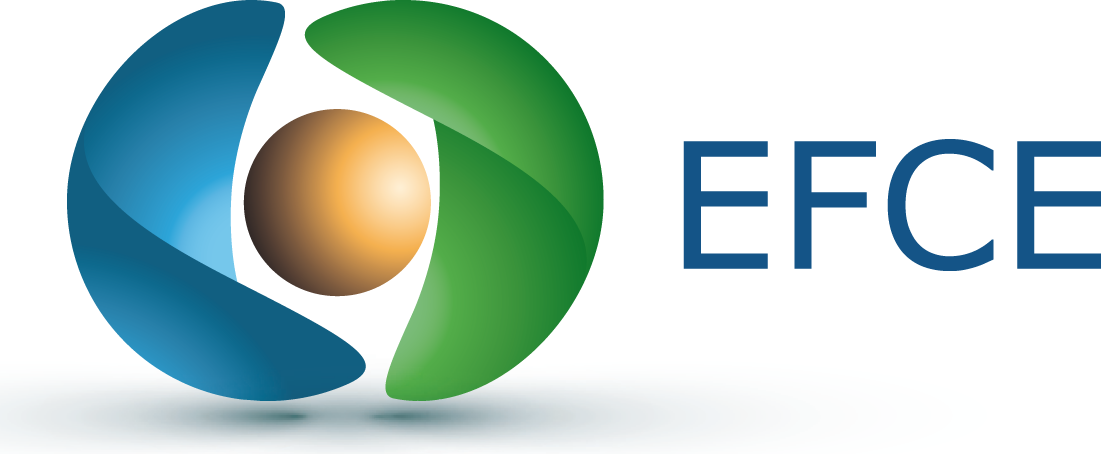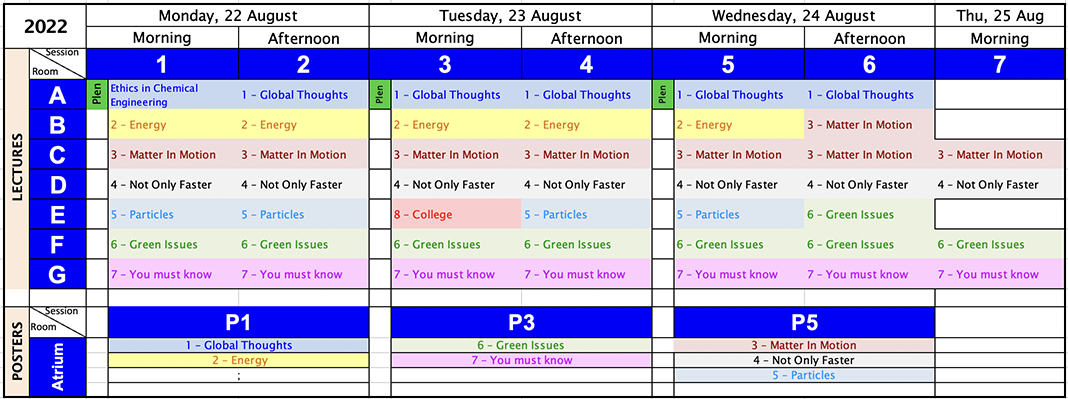Plenary Lectures
CHISA-DeGruyter Plenary Talk
Monday 22. 8. 2022
9 am to 10 am
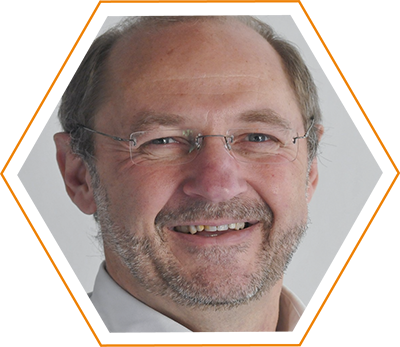
Prof. Dr. Matthias Kraume
(Technical University Berlin, DE)
Design of Chemical Processes with Liquid Multiphase Systems - Ways to Green Processes
(60 min)
Matthias Kraume studied chemical engineering at the Technical University of Dortmund. He received his doctorate in 1985. Then he worked for nine years as a research engineer at BASF AG in Ludwigshafen, before becoming a full professor of process engineering at the TU Berlin. Prof. Kraume has played an integral role in three non-profit working groups, the EFCE working group Mixing, the ProcessNet specialist group for mixing processes and the ProcessNet specialist group CFD, which are all part of DECHEMA. In 2021, together with Alberto Brucato, he won the European Federation of Chemical Engineering's 2021 Nienow Lifetime Recognition Award in Mixing. Kraume is a member of the Association of German Engineers and Society for Chemical Engineering. He founded several working groups in his department at the TU Berlin, which deal with the subject areas Multiphase Flow, Transport Processes in Multiphase Systems, Reaction Technology, Membrane Processes and Biological Processes. His main focus is on the fundamental influence of fluid dynamics on these processes and their interactions with one another.
CHISA Plenary Talk
Monday 22. 8. 2022
10 am to 11 am
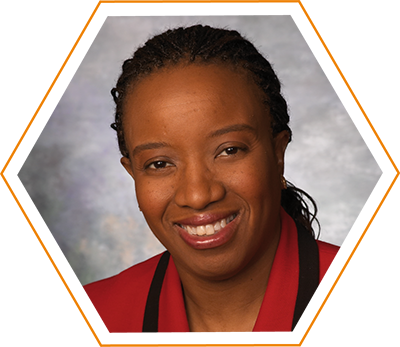
Prof. Dr. Christine Grant
(North Carolina State University, USA)
Advancing Chemical Engineering: What is our “NEXT”?
(60 min)
Christine Grant is the Associate Dean of Faculty Advancement and Professor of Chemical Engineering in the College of Engineering at North Carolina State University. Her academic and research focus areas include surface and environmental science, mass transfer and biomedical sell systems. Since 2022 she is the 2022 President of AIChE. She had received her academic degrees in Chemical Engineering at Brown University (BSc), MS and PhD at Georgia Institute of Technology. Grant studies the mechanisms that underpin fouling and decontamination. Her work investigates the chemical and transport processes that occur at the solid-liquid interface, and drive the formation and removal of deposits. Amongst the industrial areas considered by Grant are the removal of organics from glass, the removal of calcium compounds from stainless steel and the deposition of lubricants in disk drive assemblies. She has demonstrated that additives can be used to reduce the degradation and aggregation of lubricants at high temperatures. Grant is the founder of STEM Resilience, an organization that seeks to support marginalized groups in science, technology and engineering. She has held various leadership positions in the American Institute of Chemical Engineers (AIChE). she was the first African-American woman to be elected Fellow of the Society and has served as Chair of the Minority Affairs Committee and on the Board of Directors. She was elected President 2021.
CHISA-DeGruyter Plenary Talk
Tuesday 23. 8. 2022
9 am to 10 am
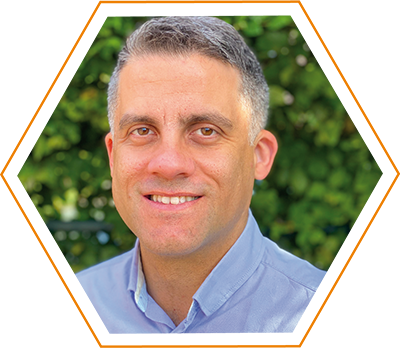
Prof. Dr. David Fernandez Rivas
(University of Twente, NL)
Engineering Empathy for the Future of Chemistry
(60 min)
David Fernandez Rivas (BS: 2004; MSc: 2006 Nuclear Engineering, Higher Institute of Science and Technology, Havana, Cuba) obtained his PhD at the University of Twente UT (2012). Assistant professor (2014-2019), associate professor (2020-2021) and Professor (2021) in the Mesoscale Chemical Systems Group, UT; and research affiliate at the Mechanical Engineering Department, Massachusetts Institute of Technology, USA (2017). His research interest and expertise are in the areas of microfluidics, transdermal drug delivery alternatives, solar-to-fuel cells, process intensification, acoustic cavitation and sonochemistry. In 2019, he obtained the European Research Council Starting Grant for his project BuBble Gun, aimed at penetrating microjets in soft substrates, towards controlled needle-free injections. He has received several recognitions, such as the Young Sonochemist Award, given by the Japan Society of Sonochemistry (JSS) in 2011, the Pieter Langerhuizen Lambertuszoon Fonds prize (2016) awarded by the Royal Holland Society of Sciences and Humanities (KHMW), and elected as Engineer of the Year 2021, and the Prince Friso Award by the Royal Dutch Institute of Engineers (KIVI). He was elected to the Global Young Academy (2020) and the Young Academy Europe (2020). He has co-authored over 50 reviewed journal papers and is inventor of the BuBble Bags, a patented ultrasonic device commercialized by the spin-off BuBclean (2013) of which he is cofounder. He also founded FlowBeams, a spin-off from the University of Twente (2021) to valorize his research and other patents on needle-free injections. He is co-chair of the COST Action Greenering: Green Chemical Engineering Network towards upscaling sustainable processes, from the European Cooperation in Science & Technology. He also serves in the editorial board of several journals, such as Ultrasonics Sonochemistry, and Biomicrofluidics.
CHISA Plenary Talk
Wednesday 24. 8. 2022
10 am to 11 am
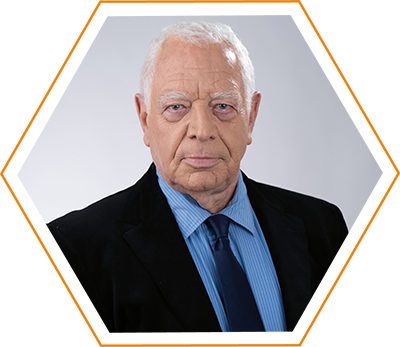
Prof. Dr. Yoel Sasson
(Hebrew University of Jerusalem, IL)
Novel approach in destruction of organic pollutants in air, soil and water
(60 min)
Yoel Sasson is a Professor (currently emeritus) of Applied Chemistry at the Hebrew University of Jerusalem (since 1976) and the incumbent of the Lester Aronberg Chair of Applied Chemistry. He served as a visiting scientist and visiting Professor at the University of Waterloo (Ontario), Virginia Polytechnic Institute, the University of Paris Sud, the National University of Singapore, Nanyang Technological University and at the Experimental Station of Du-Pont (Delaware). For 12 years (1994-2005) he held the post of VP of R&D at Makhteshim Chemical Works in Beer Sheva. Through 2010-2013 Sasson performed as the Head of the Institute of Chemistry at the Hebrew University. Through 2016-2019 Sasson acted as the Director and CEO of SHARE (Singapore Hebrew University Alliance for Research and Enterprise). Sasson is active in the area of green chemistry and environmental and process catalysis, photocatalysis, nanocatalysis and catalysis in energy conversion processes and he has been teaching several graduate and undergraduate courses in these fields. He has published 270 articles and reviews and 50 patents in these fields. Sasson has coached 140 graduate students in their Ph.D. and M.Sc. theses in Applied Chemistry. He is the founder of six start-up companies: Mercuremoval (2014), NRGStorEdge (2016) SalamandraZone (2017) CataLife (2018), PlasticBack (2019) and CelluFlux (2020).
CHISA-DeGruyter Plenary Talk
Wednesday 24. 8. 2022
9 am to 10 am
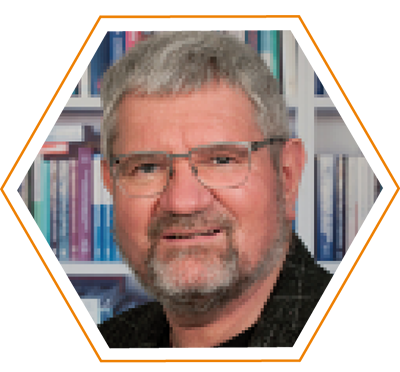
Prof. Dr. Robert Schlögl
(Director at Fritz-Haber-Institute of Max-Planck-Society)
No Energy Transition Without Chemistry
(60 min)
Robert Schlögl studied chemistry at the University of Munich, where he received his doctorate in 1982. After postdoctoral studies in Cambridge, Basel and at the Fritz Haber Institute under Gerhard Ertl (Nobel Prize winner), he completed his Habilitation in Chemistry at the Technical University of Berlin in 1989. This was followed by a call to the University of Frankfurt as Professor of Inorganic Chemistry. Then he returned to Berlin and has been Director and Scientific Member of the Fritz Haber Institute since 1994. In 2011 he was also the founding director at the Max Planck Institute for Chemical Energy Conversion. Robert Schlögl is a chemist and catalysis researcher. His research focuses on heterogeneous catalysis and materials for energy storage concepts. His work has contributed to a new understanding of catalytically active materials. Recently, he has been working on energy systems of the future and the complex challenges of the energy transition. Prof. Schlögl received numerous awards and distinctions. He was awarded the Otto Bayer Prize and the Schunk Prize for innovative materials. In 2015 he received the Alwin Mittasch Prize, in 2017 the Ruhr Prize for Art and Science. For 2019 he was awarded the Eduard Rhein Prize. He is also a member of the Berlin-Brandenburg Academy of Sciences and honorary professor at TU Berlin and Humboldt University of Berlin. He has been a member of the Leopoldina since 2011 and he is Vice President of the National Academy Leopoldina.
MAIN TOPICS
There are eight sections covering the main conference topics. The ninth is the Wiley – VCH Poster Session.
Section 1
Global Thoughts
Low to zero emission technologies
Carbon dioxide economy
Water supply, management, reuse, purification
Food in the focus
Sustainability and circularity
Healthcare, hygiene, medicine and pharmacology
The Covid outbreak and chemical engineering
Section 2
Energy
Energy to carbon footprint ratio
Low energy cost processes
Renewable energy and energy storage, hydrogen as a fuel
Energy self-sufficiency
Clean energy
Photochemistry, solar cells and solar powered technologies, fuel cells
Energy saving processes and technologies
Batteries
Section 3
Matter In Motion
Continuous process design and optimization (batch to continuous, flow chemistry)
Process intensification and miniaturisation
Fluid flow and microfluidics, multiphase flow
Microreactors for real-life products and scaled-up technologies
Mixing
Separation processes
Scale up of electrified reactors
Section 4
Not Only Faster
Reaction engineering and kinetics
Homogeneous and heterogenous catalysis
Catalytic processes
Design, preparation and characterisation of catalysts
Catalytic reactors
Section 5
Particles
Advanced functional materials
Designed, printed, integrated, used materials, 3D printing
Particulate and microporous solids, low-risk advanced materials
Biomimetics
Functional films and nanostructures
Sensors and sensing objects and nano-objects
Hierarchical structures and nanoparticles
Polymers and polymer technologies, conductive polymers
Section 6
Green Issues
No waste technologies and zero waste plants
Production-trade-customer zero waste chains
Urban mining, waste management
Microplastics and endocrine disruptors
Biotechnologies, biomass and biomass processing
Membrane processes, adsortion
Air, soil and water pollution, pollution control
Green and supercritical chemistry
VOC reduction, ionic liquids
Processes for environment
Section 7
You must know
Chemical reactors – all aspects
Transport phenomena
Distillation, extraction, SCF extraction, S-L separation, crystallisation
Thermodynamics, phase equilibria, multiphase processes
Chemical engineering computations and modelling, molecular dynamics, ab-initio calculations, mathematical predictions, neural networks
New and improved technologies
Chemical engineering and safety, prevention and loss control
Elimination of health and environmental hazards
Section 8
College
Educated chemical engineers
Teaching chemical engineering, new strategies, opportunities
Jobs in chemical engineering
Choosing chemical engineering as the field of studies – wright or wrong?
Competitiveness of chemical engineers on the job market
Wiley - VCH poster session
PUBLICATION POLICY
Authors not intending to submit a paper to the Congress special issue journal, or the authors whose contribution is not accepted for publication, are free to publish the papers at their will after the Congress. No Congress proceedings (except congress special issue - see below) will be available.
CONGRESS SPECIAL ISSUE
CHISA 2022 offers to registered participant publication of their contributions as full papers in a special issue of Chemical Engineering and Technology. Impact factor: 1.728, ISI Journal Citation Reports © Ranking: 2018:58/138 (Engineering, Chemical), Online ISSN: 1521-4125 © WILEY-VCH Verlag GmbH & Co. KGaA, Weinheim. Upon the registration the CHISA authors will be asked to express their intention to submit a contribution as an article to this special issue. It is expected that presenters of about 100 CHISA lectures and posters will be addressed with the nomination appeal. The gate for submissions of manuscripts will be open since 29 August 2022 for the next five weeks. About 35 outstanding papers will be then selected on the basis of a standard peer review process. Editor of this special issue will be B. Böck (Editor-in-Chief, DE) together with L. Obalová (Guest Editor, CZ).
Examples of the special issues can be found on:
CHISA Virtually 2021: https://onlinelibrary.wiley.com/doi/abs/10.1002/ceat.202171101
CHISA 2018: https://onlinelibrary.wiley.com/toc/15214125/42/4
CHISA 2016: https://onlinelibrary.wiley.com/toc/15214125/40/5


